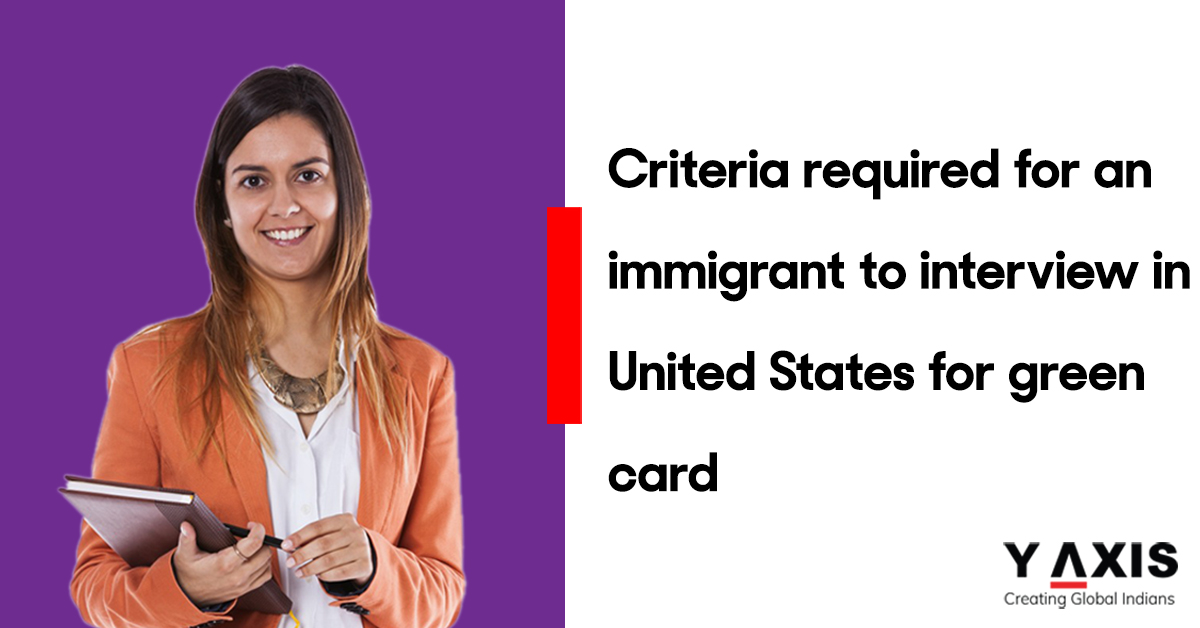Posted on April 12 2012
Criteria required for an immigrant to interview in United States for green card
By , Editor
Updated April 10 2023
Want to interview for your green card here?
 Almost everyone does, but not everyone can. Whether an immigrant visa applicant can interview here (the process called “adjustment of status,”) is one of the most common questions from callers at the CUNY/Daily News Citizenship NOW! Call-in. Below is an overview of the rules. If you still have questions, call the Citizenship NOW! hotline, April 23-27, 9:00 a.m. to 7:00 p.m. You’ll find the phone number in the April 23 edition of the Daily News.
Almost everyone does, but not everyone can. Whether an immigrant visa applicant can interview here (the process called “adjustment of status,”) is one of the most common questions from callers at the CUNY/Daily News Citizenship NOW! Call-in. Below is an overview of the rules. If you still have questions, call the Citizenship NOW! hotline, April 23-27, 9:00 a.m. to 7:00 p.m. You’ll find the phone number in the April 23 edition of the Daily News.
Most immigrant visa applicants want to interview here because if the U.S. Citizenship and Immigration Services denies your adjustment of status application, you can renew that application in immigration court. If the immigration judge denies your application, you can appeal to the Board of Immigration Appeals, and even to the U.S. Court of Appeals. Meanwhile, you can live here until the matter is resolved.
The alternative, applying for your immigrant visa at a U.S. consulate abroad is sometimes risky. If a consular officer denies your application, you could get stuck abroad for months or years. Another reason why immigrant visa applicants want to interview here is because it is less expensive to get a lawyer to appear with you at your interview. Finally, adjustment of status applicants qualify for USCIS employment authorization while their applications are pending. Those waiting for consular processing don’t have that right.
I break the rules for qualifying to adjust status down into two categories. The first set of rules apply to applicants no matter when they started their cases. The second set apply only to those who qualify under the “245i,” for those who had cases pending no later than April 30, 2001.
Under the rules that apply to all applicants, you can adjust status if either:
1. An immigration officer inspected and admitted you, you never overstayed, and you never worked without permission.
2. An immigration officer inspected you upon entry (even if you are now unlawfully here) and you are an “Immediate Relative of a U.S. citizen” — the spouse of a U.S. citizen, unmarried children under age 21 of U.S. citizens, or the parents of U.S. citizens over age 21.
3. You are applying based on your status as a refugee or asylee.
4. You qualify for permanent residence as a victim of domestic violence.
5. You are applying in an employment-based category and you did not overstay more than 180 days.
Excluded from adjusting status under the above rules are C, and D (crewman) nonimmigrants, individuals in transit without a visa (TROVs) and K fiances who marry someone other than the U.S. citizen who brought them here.
Under what many call the “245i grandfather clause,” you can adjust status if you pay a $1,000 filing penalty and:
1. A relative or employer filed papers for you on or before January 14, 1998.
2. A relative or employer filed papers for you on or before April 30, 2001 AND you were physically present here on December 21, 2000.
3. You are a derivative beneficiary of a 245i grandfathered individual — the spouse or unmarried child, under 21 of a family or employment-based preference category applicant.
Q. What about people who entered with phony passports and visas but don’t qualify under the 245i rules. If they marry a U.S. citizen, can they adjust status?
A. Yes, but it can be a tough road. You’ll need to get good legal help to win your case. Nevertheless, the U.S. Citizenship and Immigration Services agrees that entry with a phony passport, or another person’s valid passport is an “inspection and admission.” So, if the person qualifies as an immediate relative of a U.S. citizen, the person can interview here.
Usually, USCIS wants to see some entry document to prove that the person didn’t sneak into the United States. If the document shows a fraudulent entry, the USCIS will allow the applicant interview here, but require a fraud waiver. To get the waiver, you must prove that a U.S. citizens or permanent resident parent or spouse will suffer extreme hardship if you leave the United States. If you don’t have the passport you used to enter, USCIS will likely deny your adjustment of status application but you may have better luck before an immigration judge. The judge can consider both the adjustment application and the waiver. Immigration judges are more willing to believe an applicant’s claim that he or she was inspected and admitted.
Q. What about people waived-in at the Canadian and Mexican borders? Is that an inspection and admission?
A. Yes. Individuals who cross the border in a car or bus at a border checkpoint but who are not questioned by a border officer nevertheless have been inspected and admitted. Denying claims from individuals waived in at the border is common however, for USCIS examiners. Individuals waived in will have better luck getting an immigration judge to grant their adjustment of status applications.
For more news and updates, assistance with your visa needs or for a Free Assessment of your profile for Immigration or Work Visa’s just visit www.y-axis.com
Tags:
Criteria
Green Card
immigrant
interview
Share
Options for you by Y-Axis
Get it on your mobile
Get News alerts
Contact Y-Axis

